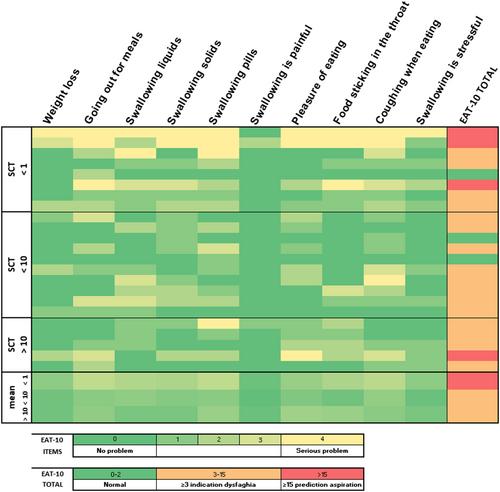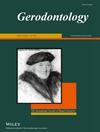This paper describes the study protocol in an ongoing clinical trial evaluating oral screen training as part of a post-stroke rehabilitation programme. Baseline data were related to four domains: dysphagia, lip function, masticatory performance and patient-related outcome measures (PROM).
Stroke is one of the most common causes of disability-adjusted life years, and dysphagia is a common remaining problem after stroke. Rehabilitation using oral screen training has been suggested to improve swallowing, but evidence is still insufficient.
Patients diagnosed with stroke with persisting objective and/or subjective swallowing dysfunction after primary rehabilitation were assessed for eligibility. In total, 25 patients were included. Objective function was assessed by swallowing capacity test (SCT), lip force and masticatory performance, subjective function by EAT-10 and NOT-S and PROM by LiSat-11 and ESAS.
Baseline data presented a heterogeneous pattern with no significant association between objective and subjective dysfunction. Most of the participants (20/25) showed impaired swallowing capacity in SCT, and 23/24 revealed orofacial dysfunction according to NOT-S. The most common subjective item reported was chewing and swallowing problems (19/24).
The heterogenous findings in the included tests and the lack of correlations emphasise the importance of multidisciplinary approaches to identify objective and subjective orofacial post-stroke dysfunction in clinical practice to be able to offer evidence-based individualised care. The included participants were representative of stroke patients with dysphagia, which supports proceeding with the planned intervention.



